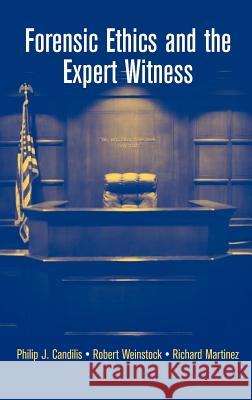Forensic Ethics and the Expert Witness » książka
Forensic Ethics and the Expert Witness
ISBN-13: 9780387353807 / Angielski / Twarda / 2007 / 211 str.
Why a book about the ethics of forensic psychiatry and related disciplines? Most psychiatrists, after all, learn something in their training about the ethics of medical practice in general and of the practice of psychiatry in particular. Do the maxims that steer all physicians through the ethical complexities of clinical medicine not provide equally effective guidance to clinical and scientific expert witnesses? The answer, in short, is No. When psychiatrists, for example, enter the realm of the expert witness, they tread on moral terrain with a significantly different topography than the paths to which they are accustomed in their clinical roles. Clinical psych- trists owe primary allegiance to their patients interests; for them the prin- ples of beneficence (doing good) and non-maleficence (avoiding harm) will generally take priority over all other considerations. For psychiatrists who serve as experts, however, there are no patients to whom fidelity is due. There are only persons being evaluated for the sake of providing opinions to third parties. Perhaps a defendant in a criminal case, a plaintiff in a tort action, or a claimant in an adjudication of disability benefits or workers compensation but not a patient. And that makes all the difference. Whatever its other virtues, no theory of the ethics of forensic psychiatry will serve its purpose unless it offers the psychiatric expert direction in dealing with this situation."











